Red Dwarf I, episode 3: “Balance of Power”
Written by Rob Grant and Doug Naylor; originally aired 29th February 1988.
Well, that wasn’t quite as short a break as I’d hoped for, but I have assignments to avoid writing. Anyway, I’m three episodes in now, so if I want to make these episode-by-episode run-throughs even remotely informative or entertaining I’m going to have to narrow my focus to specific details about each episode rather than rambling about their place in the greater scheme of things. That is what I’ve been rambling about, isn’t it? Even I’m struggling to pay attention. But here we go.
WHAT HAPPENS?
It’s another Lister v. Rimmer episode this time around. You could argue that with the limited budget and lack of substantial characters or set pieces, pitting these two against each other was really all Grant and Naylor had up their sleeves at this point – after all, most of these early episodes revolve around some sort of conflict between the two – but why not? These were killer characters even then. In “Balance of Power” it finally hits Lister just how lonely he is: all his friends and co-workers are dead and the only companions he has left are a senile on-board computer, a self-centered cat and his least favourite person in the universe. It’s a feeling of ennui and isolation that manifests nicely, if a little mawkishly, in a flashback to a night out with his mates, with appearances from Kochanski and Rimmer. Three million years later, only he remains – and Rimmer, of course.
Speaking of Rimmer, in a particularly blue moment Lister begs his deceased bunkmate to let him switch disks (remember, Holly can only support one hologram at a time) and spend some time with Kochanski, his kinda-sorta-maybe flame from back when everyone wasn’t dead. Being the berk he is, Rimmer naturally refuses; but, hang on, is he really being that unreasonable? Regardless, as an officer of higher ranking Rimmer has the power to turn down Lister’s demands, so Lister decides to stick it to him where it really hurts: take the exams required to outrank Rimmer and supercede his authority, tipping the titular “balance of power.”
Also, Cat eats some fish. That’s about it for a B-plot. Some good jokes, though.
SOME CONTEMPLATIVE SMEG
- Lister’s plan, in theory, is pretty much perfect: Rimmer is a total shmuck for authority figures, bowing to anyone and anything if they rank higher than him, so if Lister took on any role above him – even chef – Rimmer would have no choice, by his own doing, but to obey and switch the disks. But Rimmer has a trick up his own sleeve – or Kochanski’s, rather – providing some neat comedy towards the end. Seeing Rimmer indignant at Kochanski’s remaining breast, then immediately changing his mind after giving it a quick fondle, is a truly unsettling moment and perfectly symbolic of Rimmer’s double-standard nature, frequently fluctuating between honour and smegheadedness.
- Once again the show plays with the concept of death and ways of actively overcoming it.
- Back to my earlier point, is Rimmer being unfair here? It’s worth a thought. His thinking is that once Lister has Kochanski, there’ll be no need to switch him back on, which makes sense. On the other hand, Lister would still be a nervous wreck around her (as we see later in the episode); Kochanski herself would be pretty shaken by the situation of having been dead for three million years; and given that you can walk right through them, even if Lister did pull, how much does he think he’s going to be able to do with her? And what’s to say Kochanski wouldn’t be as authoritarian as Rimmer in such a stark situation? Still, probably better company than Rimmer all round.
- The flashback scene is actually pretty nice: a bit of camaraderie, some good laughs with Rimmer’s memory-drug… it’s like a condensed sitcom-within-a-sitcom, the show Red Dwarf could have been, had it not been for that whole pesky radiation business. Reminds me of that bit in Dracula where the narrative switches to the captain’s journal, fleshing out how Dracula came to England. Necessary? Perhaps not, but worth a look. Arguably this scene does have a point, hammering home the weight of Lister’s isolation: last man in the universe, last man at the disco. Also a nice touch ending such a sentimental scene with a vicious little stinger gag like that, just to make sure this thing doesn’t get too mushy on us.
- I haven’t studied media studies in a while, but I was taught that the general rule of sitcom writing was that you start at a state of equilibrium where everything’s dandy (or fairly normal, anyway), move to a state of disequilibrium via some conflict, event, misunderstanding or whatever, and eventually return to the dandy equilibrium by the end of the episode. A lot of sitcoms actually subvert this and end with things still up in the air, as Red Dwarf does here. I wonder if there was any temptation on the writers’ part to actually run with the ending and have Lister actually pass the exam? We’ll never know. Unless we ask them, of course, but they’re probably busy and I don’t want to be rude.
BULLET TRAIN OF THOUGHT
- No word on whether those 4,691 irradiated haggis were ever catalogued in the end, then?
- Hermann Göring over Rimmer as a holographic companion? “Okay, he was a drug-crazed transvestite, but at least we could have gone dancing.”
- The mild, irritating consequences of voice activation – in some ways, Red Dwarf was way ahead of its time.
- So Lister and Kochanski only ever exchanged 173 words? And yet by series VII they’re supposed to have had a full-blown romantic relationship? Interesting how a show’s inner logic changes over time, isn’t it?
- Cat’s shoulder pads… it was still the Eighties, folks.
- Anyone else reckon the warning label on Lister’s record was a sly dig at the PMRC? All the cool rock bands were doing a similar thing at the time.
- Underrated sitcom relationship: Rimmer and Holly. Norman Lovett’s deadpan delivery contrasts wonderfully with Chris Barrie’s full-on obnoxiousness.
- Some marvellous physical comedy from Barrie – and as it turns out, it actually has some (very) loose connection to later plot.
- “I hate everything.” Spot-on delivery.
- I’d love to hear how Lister’s roast beef became a cake. Actually… maybe not.
- More lovely, rambling conversation between Lister and Rimmer. Also, tip-of-the-hat to Craig Charles’ deliciously cruel reading of Lister’s taunt.
- I still wonder why Rimmer is (initially, at least) so keen for Lister to get to the exam room. Maybe it’s just his own attitude to examinations, procedure and timekeeping contrasted against Lister’s laidback approach, but it does seem like he’s annoyed that Lister isn’t taking the exam yet – until he does his 180 and tries (unsuccessfully) to stop him.
- Clare Grogan’s performance here is just fantastic. “I’m having a woman’s period.”
- As gross as “Rimchanski’s” penultimate line is, I still like to use ‘squire’ myself in conversation. It’s just fancy-sounding, y’know?
- Nice Eighties freeze-frame moment at the end there. I guess those were more common than I thought.
So all in all, I’d say “Balance of Power” is my favourite episode so far. The plot might be a little loose for some peoples’ tastes, but the humour makes up for it. Can’t be bad.
P.S. Still fiddling about with formats, as you can see. Think of this run-through of the first series of Red Dwarf as something of a first series of my own: messing around with the parts, seeing where they fit best. It might be a clumsy walk, but we’ll get somewhere great in the end. Hopefully. I mean, ramblers can fall off cliffs or walk into roads if they’re not looking, so all I have to do is… look. And maybe we should all look.
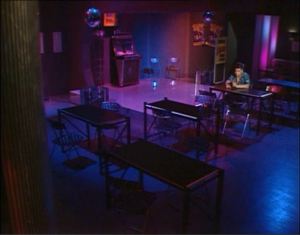

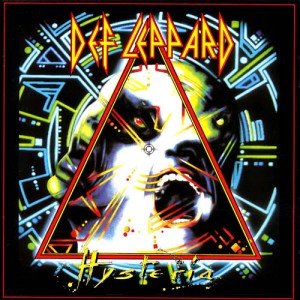



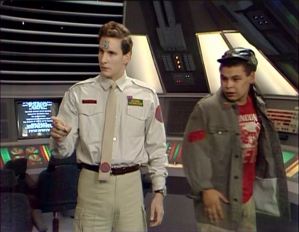
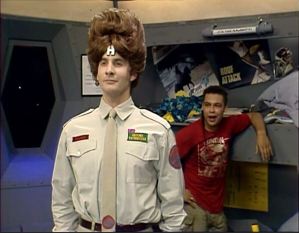
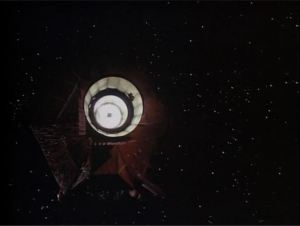
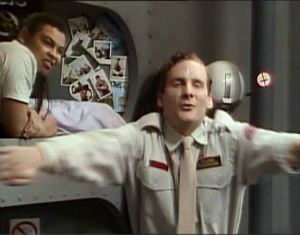

You must be logged in to post a comment.